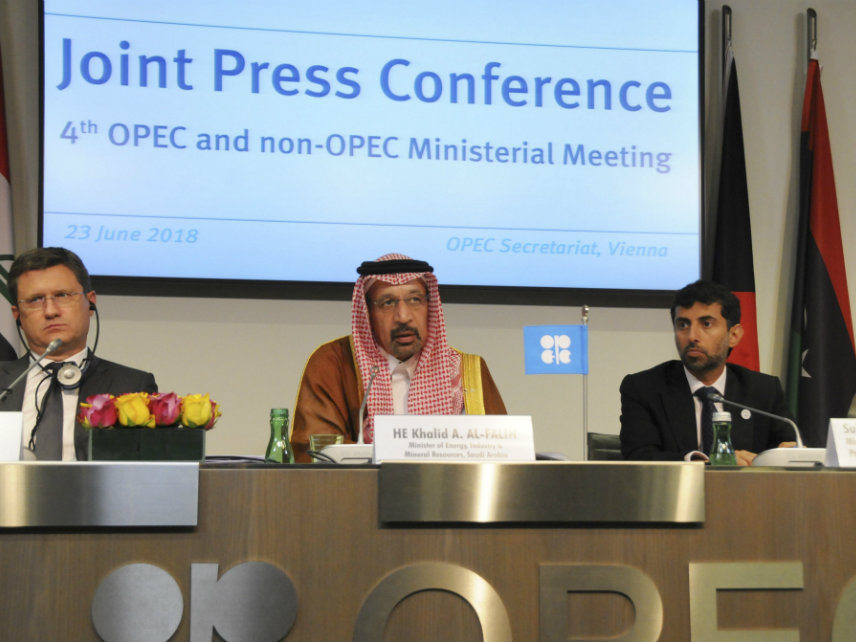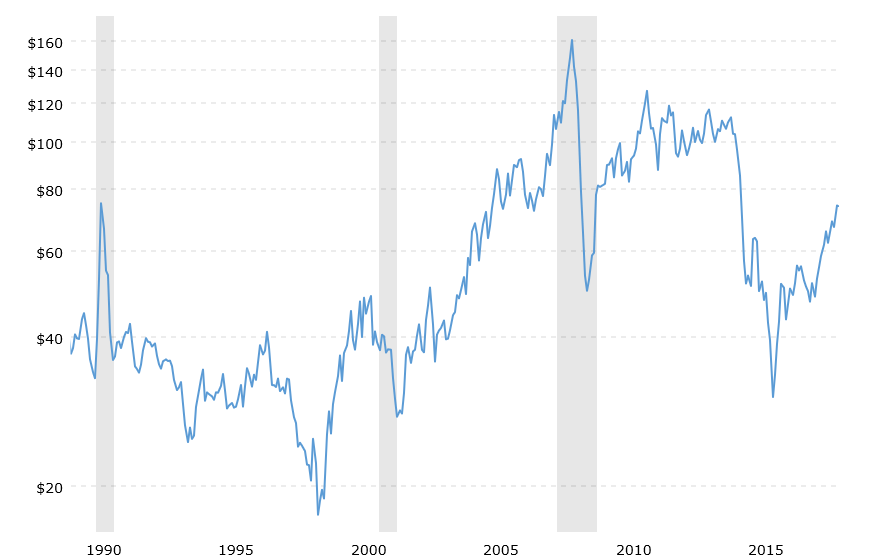Oil Prices Are Rising. Don't Expect Trump's Tweets to Lower Them.
If the president does want to lower oil prices, he could push Congress to expand domestic oil production.

Gas prices are beyond the ability of any American president to control, but that didn't stop President Donald Trump from trying to resolve a complex issue with the bluntest of policy tools: his Twitter account set to all-caps.
With oil prices rising to three-year highs last week, Trump exhorted the Organization of Petroleum Exporting Countries (OPEC) to "REDUCE PRICING NOW!"
The OPEC Monopoly must remember that gas prices are up & they are doing little to help. If anything, they are driving prices higher as the United States defends many of their members for very little $'s. This must be a two way street. REDUCE PRICING NOW!
— Donald J. Trump (@realDonaldTrump) July 4, 2018
This isn't the first time the president has gone after OPEC on Twitter recently:
Looks like OPEC is at it again. With record amounts of Oil all over the place, including the fully loaded ships at sea, Oil prices are artificially Very High! No good and will not be accepted!
— Donald J. Trump (@realDonaldTrump) April 20, 2018
Iran snapped back at the accusation of OPEC price gauging, accusing Trump of creating market uncertainty and raising oil prices with his tweets. Iran also accused Trump of being the reason for the surge in oil prices through his sanctions on Venezuela and Iran, both members of OPEC.
Meanwhile, North America has enough fossil fuels to last us for "generations," but government policies often stand in the way of exploiting these resources. If Trump really wants to reduce oil prices in America, he should start there.
"If the U.S. government were to relax regulations on offshore oil resources and expedite having companies develop oil resources that are on federal land, then the U.S. would not nearly be as dependent on OPEC as it currently is," says Robert Murphy, an economist at the Institute for Energy Research. Freer markets in the energy sector would severely undercut the OPEC cartel and would reduce energy costs for American consumers, who will undeniably benefit from the increased competition.
The president is right that oil prices are rising, and he's partly correct that OPEC is "doing little to help," insofar as OPEC isn't producing enough oil to cope up with market demand. But that's more of an issue with specific policies that certain OPEC nations have adopted, and not, as the president seems to believe, a conscious conspiracy to hurt American consumers. In fact, Yahoo Finance reported Thursday that Saudi Arabia will reduce the price of a barrel of light oil from $2.10 above the Middle East benchmark price to $1.90 above it.*

Iran's response is also a bit of a half-truth. Yes, sanctions have had a big effect on Iranian oil production, but that isn't necessarily the case with Venezuela.
"Sanctions on Iran are having a chilling effect on their ability to sell oil on the world market," says Murphy. "With Venezuela, I would say that's more the fault of their domestic policies that are crippling their economy overall."
*This post has been updated to correct Saudi Arabia's recent reduction in the price of light crude oil. The price has reduced to $1.90 above the Middle East benchmark price per barrel, not to $1.90 per barrel.


Show Comments (38)